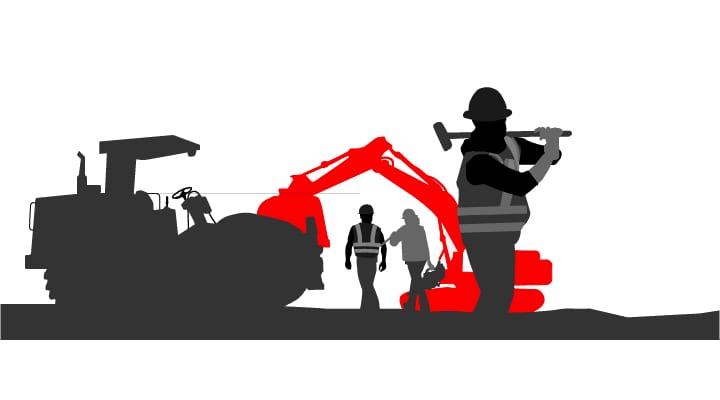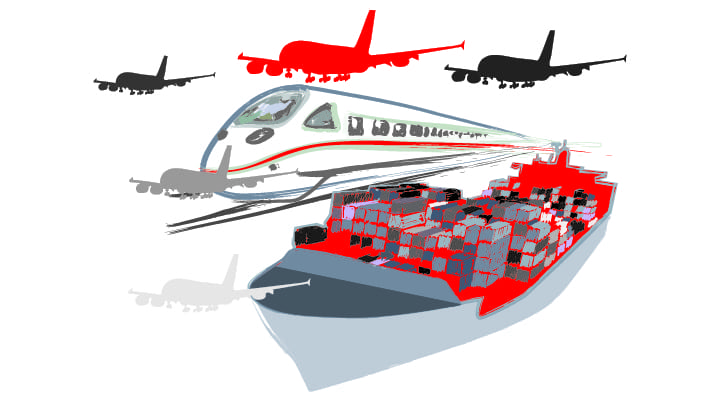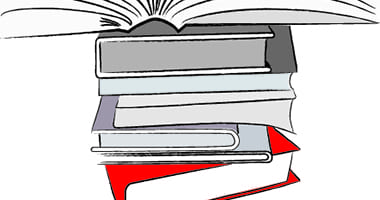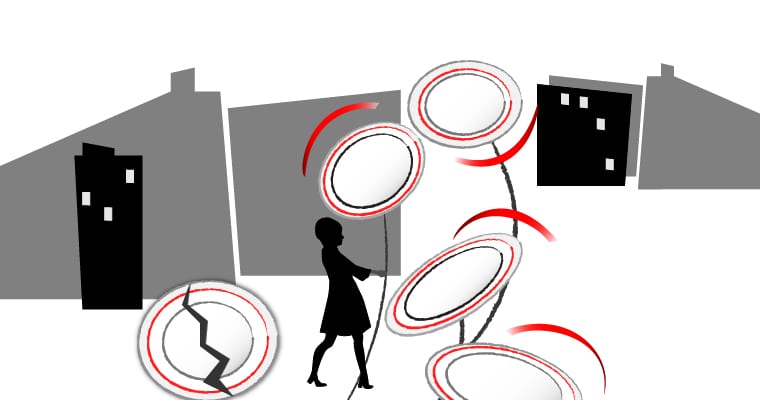Amanda Bucklow

If you are looking for a mediator with experience and a great track record for guiding people to agreement then you are in the right place. Equally, if you are looking for a mediator with experience managing mediations online via video conferencing which mirrors the face-to-face mediation process, then I have that experience too.
I am an international commercial mediator with over two decades of mediation experience, a reputation for getting people to the table and engaging them in successful negotiation and good decision-making.
One of a handful of career mediators practising in the UK, I have maintained a full-time negotiation practice since 1991 and was accredited as a commercial mediator in 1996. My portfolio of cases comprises hundreds of mediated disputes across a range of industry sectors.
My personal style is to focus on generating good decisions and I have an enviable track record as a guide and catalyst for reaching agreement between even the most ‘individual’ of individuals.
Clients frequently remark on my commercial flair, creative input and persistence in finding a resolution with a persuasive yet non-confrontational style. “If there is a deal to be done, she will help you find it.“
For many years, I have enjoyed consistently positive feedback in both Legal 500 and Chambers Guide to the Legal Profession.
If you would like to book a complimentary call to explore how I might support you in resolving a dispute, please use this link
Technology
Mediating Remotely

Mediating remotely is an effective and realistic choice for resolving disputes now. In many cases the ‘remote’ style offers advantages over an ‘in person’ mediation for both pre-mediation meetings and the mediation itself.
I have long experience of mediating online and managing ‘virtual’ meetings. I can guide you through the pros and cons and answer any questions you may have.
I was cynical about the technology which I thought would be clunky but this was not the case due to the preparation and professionalism of the mediator.
There were a number amongst us that were not confident they could use the technology. The trial run which Amanda incorporated into the pre-mediation preparation was worth it’s weight in gold.


I have been in a mediation before, and I was very surprised how quickly we all adapted to the online environment. At first, it felt like it was going to be very confrontational, especially between the two owners. Interestingly, it was much less so than it might have been. It didn’t take very long for the meat of the business to get going.
Mediation is an experience
Online presentation about mediation. April 2021
Mediation is a behaviour and an experience. People who have not experienced mediation will find it difficult to appreciate the extraordinary value it brings to people, companies, organisations and communities. Mediation is a powerful example of collaboration.
In this video, Amanda Bucklow explains what makes it a good experience and why that matters more than ever as we face significant challenges now and in the future.
0.00 Introduction
3.42 Presentation start
25.25 Presentation end
26.23 Reflections on the presentation
29.35 The importance of mediation right now
30.15 Insights from the last 12 months
Can a mediator reach places a diplomat cannot?
Presentation to the European-Atlantic Group by Amanda Bucklow on 18 June 2021.
Historically, escalating situations have been left to nation-state actors such as diplomats and politicians to resolve and arguably with varying success. Amanda discusses and reflects on this based on her perceptions and experience in various disputes and shares anecdotes from those experiences. She explores:
• How is the mediator’s intervention different from that of a diplomat in de-escalating and resolving disputes?
• What skills does the mediator bring?
• What can the mediator and the diplomat learn from each other?
00.00 – Welcome
05.35 – Presentation
06.01 – Overview
07.21 – Peace accords
10.22 – Interventions
11.20 – Democratisation
12.59 – Best practice
18.58 – Understanding conflict
20.13 – People do not want peace… imposed
20.46 – Intermediaries
22.58 – The Labyrinth – video
25.37 – Observing the video – results
29.48 – The skills of a mediator
32:24 – The attributes and behaviours of mediators
32:32 – Effective mediators
32:44 – Being a mediator – state of paradox
34:30 – Principles of mediation
36:55 – Being a mediator 2
38:54 – A diplomat is a state actor
39:25 – A story
48:09 – Start of questions
01:35:46 – End
Conducting Mediations Remotely via Zoom
This video originally appeared on HR Network TV from Employment Law Plus, a regular weekly news round up provided by Pinsent Masons LLP
Conducting Mediations Remotely Via Zoom.
A series of 4 short videos about using Zoom as a platform for conducting mediations remotely will appear over the next few days. The first is shown below.
How technology can mirror face-to-face mediations
- how the technology mirrors the face-to-face mediation;
- preparation so you are comfortable with the technology;
- joining the meeting and keeping the meeting private;
- how the day is managed.
Conducting Mediations Remotely via Zoom
There are many online platforms for meetings and conferences. My preference is for Zoom because it mirrors most closely the physical mediation.
In this video I consider the security, privacy and confidentiality questions which many have.
We can use the platform that most suits your needs.
Security, Privacy and Confidentiality
- password protection
- the waiting room
- individual breakout rooms speaking privately either with or without the mediator present
- messaging/chat
- host controls over chat and not saving chat.
EXPERIENCE
Sector Experience
- Construction
- Employment
- Financial Services
- IT & Telecoms
- Planning and Development
- Public Sector
- Rail, Air and Shipping
- Broadcasting
- Fashion & Design
- Fine Art & Photography
- Intellectual Property
- Marketing & Advertising
- Performing Arts
- Publishing
- Board & Trustee
- Education
- Family Business
- Inheritance & Estate Administration
- Merger & Acquisition
- Partnership

Employment and Workplace
Retention and performance
W hatever the outcome, be that a parting of the ways or restoration of a working relationship, specialist skills are required to help employees and employers out of a painful impasse. If you appoint Amanda in an employment case, you can be sure that all the options will be fully explored to find a way forward.
Early involvement can reduce the risk of long-term consequences for both employee and employer.

Construction
On time, on Budget
The construction industry is in real crisis with overwhelming expectations to improve accountability and performance in very short timescales. The underlying issues are appropriate risk allocation in the supply chain and value for money. These are urgent goals that demand exceptional skills to deliver improvements which secure the survival of the industry. Mediation and structured negotiation offer a realistic opportunity to support the transition to sustainability.

IT & Telecommunications
Speed and agility
I n a fast moving world where agility and problem solving are key to preserving high value contracts, disputes cost a great deal not just in money but in lost opportunities. Mediation offers speed, options and significant cost savings. It also deals with the pace of change and the need to respond to risks and opportunities.

Rail, Air and Shipping
quality and speed
W hen the world economy is under pressure, aviation, rail and shipping sectors are amongst the first to feel the effects. Environmental pressures, regulation, market fuel prices, disposable income and company restructuring are all factors in how these sectors respond to the challenge of staying profitable. In the end, the objective is to run a successful business in challenging times. Disputes take away the energy from the important demands of building and maintaining a profitable business.

Marketing & Publishing
Brand and Reputation
T he marriage of creativity and commerce is often rocky. Creating something new and monetising it is fraught with risks. Whether drafting initial agreements or settling disputes, the mediation process is appropriate and effective because it can take account of nuances and build pragmatic and imaginative solutions.

Family Business
Legacy
V ery few family businesses make it to the third generation without a serious dispute. The values and vision change for each generation. Mediation is the opportunity for re-alignment of those values and vision and a chance to build a secure and successful future and sustain a legacy in the interests of those the business exists to benefit.
Highlights From My Blog
Why Should You Appoint Amanda?

Commercial Experience
Amanda draws on a rich commercial background which encompasses engineering, transport, financial markets, marketing, manufacturing and creative disciplines.

Interpersonal Skills

International Business and Cross-Border
Extensive experience of concluding business in a multitude of countries. Her international experience makes her an obvious choice for cross-border and international disputes.

Knowledge and Expertise

Track Record

Testimonials
![]() Amanda Bucklow mediates a wide range of commercial disputes and employment-related matters, including discrimination and dismissal issues; Bucklow has notable expertise in transport, IT and financial services claims, as well as disputes involving regulated sectors.” Legal 500
Amanda Bucklow mediates a wide range of commercial disputes and employment-related matters, including discrimination and dismissal issues; Bucklow has notable expertise in transport, IT and financial services claims, as well as disputes involving regulated sectors.” Legal 500
![]() Respected mediator Amanda Bucklow is experienced in mediating a large variety of cases, with noted expertise in employment disputes regarding dismissal and discrimination. Her international practice also takes in claims involving property, professional negligence and public sector issues. She is “charming and engaging,” according to one source, who adds that she is “particularly useful in cases involving complex personalities, which she can read like a book.” Chambers and Partners
Respected mediator Amanda Bucklow is experienced in mediating a large variety of cases, with noted expertise in employment disputes regarding dismissal and discrimination. Her international practice also takes in claims involving property, professional negligence and public sector issues. She is “charming and engaging,” according to one source, who adds that she is “particularly useful in cases involving complex personalities, which she can read like a book.” Chambers and Partners
FAQ
Who pays for the mediator?
Is a mediation always one day?
It is amazing how much can be achieved in one day. For more complex cases two or more days happens frequently. With a very limited amount of information about the matter Amanda will be able to advise on the options and design a process that suits the people and the problem.
There are some types of matters where a half day followed by a further day might be more appropriate. Alternatively, a good deal of preparatory work can be done by phone so that everyone arrives at the mediation with a clear idea of what needs to be discussed. Amanda is well known for her preparation of herself and of the parties so that everyone has a sense of what might happen and the time is used to find a settlement.
How do you choose a mediator?
How do I prepare for a mediation?
The 'right' settlement agreement will depend upon the right planning and preparation. Preparation for mediation is not the same as preparation for trial: greater emphasis is placed on
- identifying the elements of a settlement and what they might look like.
- preparing the client and their legal representative for making the best use of the time
- position statement which is focused on informing the mediator rather than rehearsing the pleadings
- strategy and plan for considering options
- effective selection of supporting documents.
There are other elements of of preparation and these are covered in the Mediation Advocacy Course.
Is mediation always about compromise - meeting in the middle?
When is the best time to mediate?
Mediation works at anytime during a conflict or dispute. One of the obvious advantages of early dispute resolution is controlling the costs. These are not just legal costs but the costs of delay, distraction and lost opportunities. The earlier the timing of structured negotiation the more likely the relationship can be restored and the investment in the contract preserved. This is important where parties are likely to be in business with each other in the future.
The ingredients for a good mediation are willingness to engage, healthy cynicism and a desire for a resolution. The rest is up to the skills and experience of the mediator. For more information see FAQ How do you chose a mediator?
Doesn't mediation simply add to the costs?
The short answer is 'no'. Each case is different and there will be a small number that in the end were more expensive because of taking part in a mediation.
However, here are the myth busters:
1. Only about 3% of claims end up in trial. Some fall away, some are thrown out and the vast majority of what remains is settled before trial. Very many of those on the 'steps of the court'. It costs money to get to the 'steps of the court'.
2. Over 70% of mediations settle either on the day or shortly afterwards.
Therefore if you take 1 and 2 into account why would you decide not to mediate or have a managed negotiation? It will give you the best possible chance of making a good decision rather than have one imposed on you which you may not like.
And 3. Increasingly, the courts are penalising those who refuse to mediate by refusing or reducing the awards of costs even if you are successful.
Accelerated Dispute Resolution
The pressure on the courts to deal with claims and the time it takes to organise adjudication and arbitration means that business or contract is 'on hold' driven by the issues in dispute. Since most claims are either dropped or settled before they reach the courts, it makes sense to manage that process of negotiation as early as possible. Mediation and negotiation are not alternatives to litigation: they are an integral part of dispute management which includes the option to go to trial.
